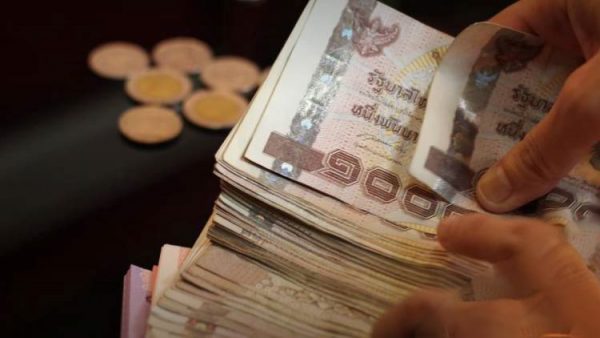Hong Kong standoff takes a toll on Thai economy

The political standoff in Hong Kong is not only fueling fears that Hong Kong may be heading for recession, but also that it may hurt Thailand’s economy.
For example, Thailand’s tourism sector may suffer from a drop in inbound tourist numbers from Hong Kong in August, which is usually the most popular season for holidaymakers because it is when Hong Kong’s schools take their long summer break.
Normally, an average of 4,600 Hong Kong tourists enter Thailand per day during August. However, this year, the number is set to drop.
The shutdown last weekend of Hong Kong international airport, one of the world’s busiest, disrupted travel plans, including those of tourists bound for Thailand.
Mr. Somchai Phagaphasvivat, an international trade economist, said the political standoff in the Asian financial hub will impact Thailand’s trade, investment, exports and tourism and exchange rate.
The issue may become more complicated, as it has now been connected to the US-China trade war. US President Donald Trump has recently linked Hong Kong’s unrest to trade talks with Chinese leader Xi Jinping.
Thai exports
Hong Kong is the fifth largest importer of Thai goods, representing around 4.7% of Thailand’s total exports.
In the first half of this year, Thai exports to Hong Kong reduced by more than 9%, even before the escalating violent protests in Hong Kong.
In addition to Thai consumer products, a huge quantity of Thai industrial goods transit through Hong Kong for onward shipping to manufacturing facilities in third countries, mostly in the US and China.
In the first half of this year, the slump in global demand caused a drop of over 10% in the amount of Thai electronic parts and equipment shipped via Hong Kong.
Kasikorn Research Center predicts Thai outbound shipments to Hong Kong for the entire year of 2019 may contract by as much as 12%.
Hong Kong’s protests have started to take a toll on the domestic economy, as the retail and property sectors are being badly hurt, decreasing consumer demand for imports.
Kasikorn Research Center projects that the situation may reduce Thai export value by between USD500 million and USD900 million, depending on how the situation develops.
If the situation does not escalate and ends soon, the negative impact on Thailand’s exports may be limited to USD500 million. The affected products are gems and jewelry, vegetables and fruit, rice, processed chicken, eggs, canned seafood and canned fruit.
However, if the situation spirals out of control, domestic business activity may come to a halt, causing disruption to maritime transport. The damage to Thailand’s outbound shipments to Hong Kong may increase to USD900 million.
Moreover, a large quantity of Thailand’s intermediate goods are shipped via Hong Kong, which is used as a transit point to China. The products affected include computers and parts, integrated circuit boards, telephone equipment, transistors and diodes and printed circuits.
Financial hub
The gridlock does not only disrupt trade, but also damages Hong Kong’s reputation as Asia’s business-friendly financial hub.
The standoff may also shake investor confidence in China, affecting the value of the Yuan, counter to the movement of other regional currencies, including the Thai Baht, which continues to strengthen in relative value.
Mr. Yuthapol Laplamool, Managing Director at Phatra Asset Management, said that the location of Hong Kong, as a link between the East and the West, may affect investment decisions in the future and urged investors to take a cautious approach to their business decisions as the situation evolves.
Mr. Narongsak Plodmechai, Chief Executive Officer at SCB Asset Management, however, expects the situation to be contained and the Hong Kong demonstrations not to cause regional economic problems.






